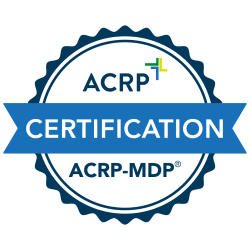From waiters and waitresses serving food to patrons while wearing masks to the prospect of baseball games played without fans in the stands, it’s no understatement to say COVID-19 will continue to transform life in the United States and much of the world for the foreseeable future.
When it comes to clinical trials, the COVID-19 period may be remembered as a catalyst that awakened dormant movements to leverage new technologies and best practices to speed clinical trial start-up.
If Noelle Gaskill gets a chance to write the history of this time period, she’s hoping it will be about how the clinical trial industry permanently leveraged lessons learned when it successfully opened COVID-19 clinical trials in a matter of days at the height of the pandemic. Gaskill is a senior vice president in research operations at SignalPath, LLC, with a “personal passion” to improve study start-up times.
Calling study start-up “arguably the most inefficient process within the clinical research operation execution,” she believes industry has an opportunity to make lasting changes inspired by seeing what worked so well to launch COVID-19 trials under pressure-filled conditions.
Gaskill calls on industry to confront two of the biggest challenges slowing studies pre-COVID: lack of visibility and lack of accountability.
Too often, sites, sponsors, and others in the start-up chain “don’t know where they are in the process” at any given time during the lead-up to study launch, Gaskill says. Noting that regulatory, budgetary, and contract issues are often moving simultaneously during study start-up, Gaskill says clinical trial practitioners suffer from an inability to “know what the specific hold-up is” during the process on those tracks.
“They may know there is a regulatory delay, for example, but not what is specifically happening or who is responsible,” she says.
Clear timelines and accountability are keys to improving study start-up times, Gaskill stresses. “No one likes to be measured,” but it’s vital, she adds. “We need to get timetables and measurement in place, and we need to have regular check-in meetings, so people know clearly who is responsible for what” aspect of trial start-up.
The COVID-19 pandemic has demonstrated the clinical trial industry can move quickly when so inspired, Gaskill notes. “Now it’s time to use those lessons we learned” to speed trial start-up in the future, she adds.
Author: Michael Causey



